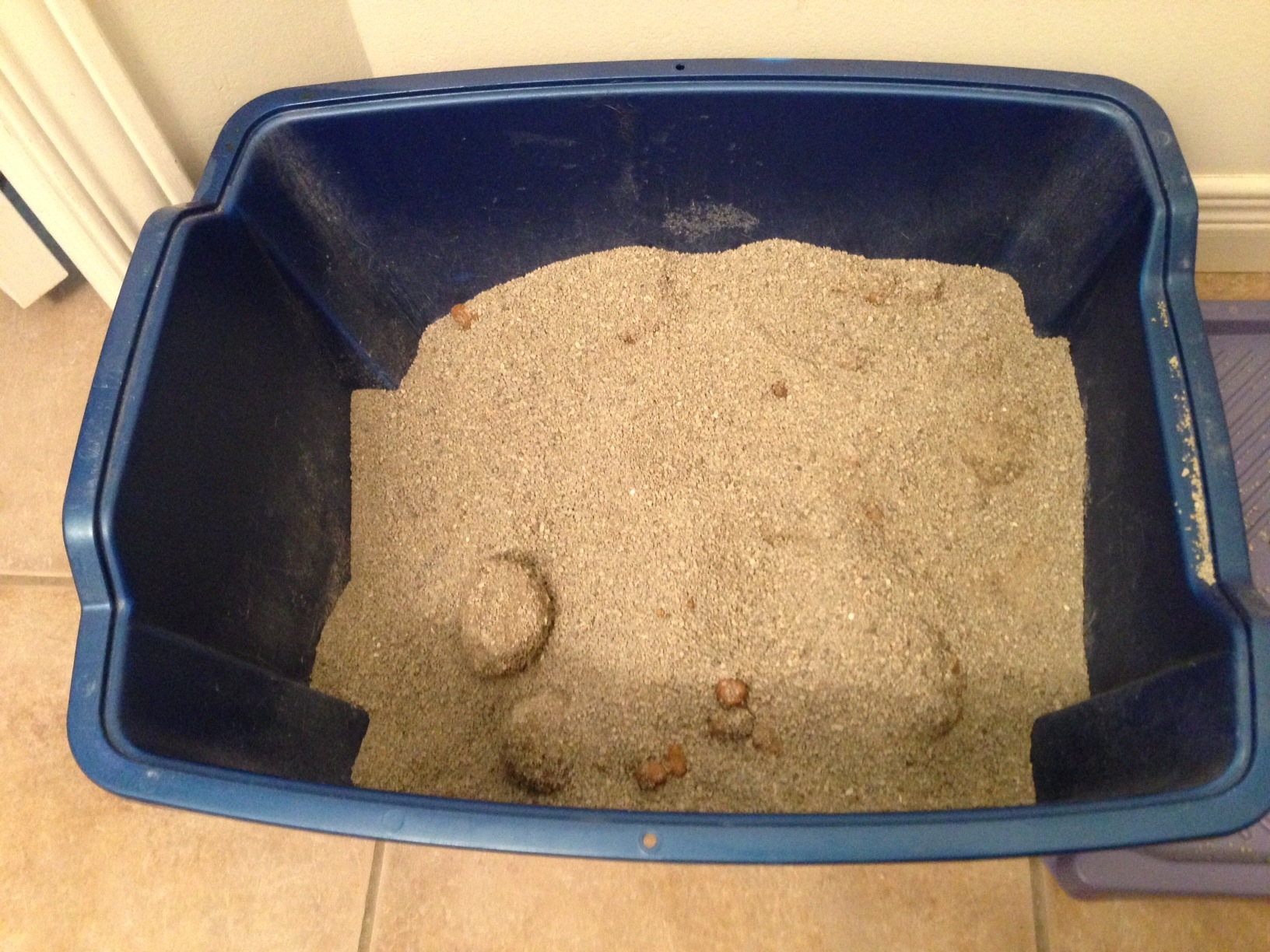 Headline writers have had a lot of fun over the past few years writing about toxoplasmosis and potential associations with neurological and behavioural disorders in people. Cats are the main natural host of Toxoplasma gondii, so “crazy cat lady” and other predictable headlines have ensued.
Headline writers have had a lot of fun over the past few years writing about toxoplasmosis and potential associations with neurological and behavioural disorders in people. Cats are the main natural host of Toxoplasma gondii, so “crazy cat lady” and other predictable headlines have ensued.
But, what is the real risk?
The answer is
 I had an interesting question today about the cat-associated parasite Toxoplasma gondii. It can cause serious infection in people that ingest it, particularly in immunocompromised individuals and pregnant women, but disease is rare. Since cats can pass one form of the parasite in their feces, the question was whether using flushable kitty litter is
I had an interesting question today about the cat-associated parasite Toxoplasma gondii. It can cause serious infection in people that ingest it, particularly in immunocompromised individuals and pregnant women, but disease is rare. Since cats can pass one form of the parasite in their feces, the question was whether using flushable kitty litter is I grew up with cats, and they were all indoor/outdoor. I never really thought about it since that was just the way things were done. Yet, as much as he’d like to convince us otherwise, our current cat Finnegan is an indoor cat. There are a lot of reasons for this.
I grew up with cats, and they were all indoor/outdoor. I never really thought about it since that was just the way things were done. Yet, as much as he’d like to convince us otherwise, our current cat Finnegan is an indoor cat. There are a lot of reasons for this. I love my cats. But sometimes when Bonnie and Clyde are living up to their names, puking up hair balls twice a day, peeing on the guest bed (yes, contrary to popular belief even vets can’t stop their own cats from doing this sometimes), caterwauling at 3 AM, or begging for food all afternoon, they
I love my cats. But sometimes when Bonnie and Clyde are living up to their names, puking up hair balls twice a day, peeing on the guest bed (yes, contrary to popular belief even vets can’t stop their own cats from doing this sometimes), caterwauling at 3 AM, or begging for food all afternoon, they A recent column by pediatrician Dr. T. Berry Brazelton has caused quite a stir. Dr. Brazleton is apparently a very well known syndicated columnist, and
A recent column by pediatrician Dr. T. Berry Brazelton has caused quite a stir. Dr. Brazleton is apparently a very well known syndicated columnist, and  You may notice a recurring theme in many of our posts and on virtually all of the information sheets on the
You may notice a recurring theme in many of our posts and on virtually all of the information sheets on the 
 Toxoplasma gondii is one of the most widespread zoonotic pathogens in the world. Toxoplasma is a protozoal parasite that can infect almost any warm-blooded animal, including humans. In most people and animals, infection doesn’t cause any illness at all, and after the initial infection, the body usually produces strong immunity which protects it from subsequent
Toxoplasma gondii is one of the most widespread zoonotic pathogens in the world. Toxoplasma is a protozoal parasite that can infect almost any warm-blooded animal, including humans. In most people and animals, infection doesn’t cause any illness at all, and after the initial infection, the body usually produces strong immunity which protects it from subsequent